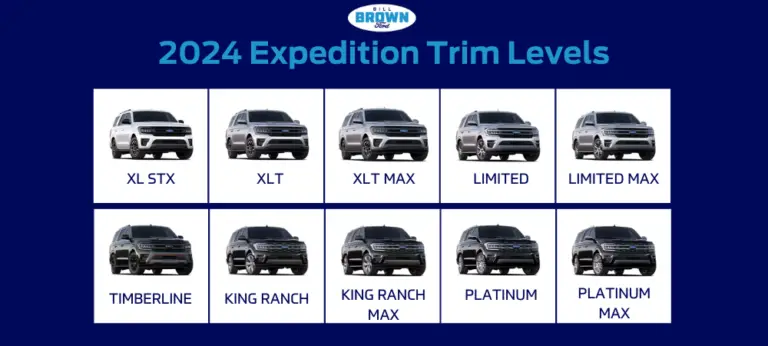The Mustang takes unleaded gasoline. It is essential for optimal performance and fuel efficiency.
For owners of the iconic Mustang, ensuring the right type of fuel is vital to keep their cars running smoothly. When it comes to refueling, many drivers may wonder what gas the Mustang takes. The answer is simple – unleaded gasoline.
This high-performance vehicle requires unleaded fuel to operate efficiently and maintain its powerful performance on the road. Understanding the specific fuel requirements of your Mustang is crucial to prevent any damage to the engine and ensure a top-notch driving experience. Whether you’re cruising down the highway or revving up the engine, using the correct fuel will keep your Mustang running like a dream.
1. Types Of Fuel For Mustang
1.1 Gasoline
Most Ford Mustang models require regular gasoline with an octane rating of 87 or higher.
1.2 Premium Gasoline
Some higher-performance Mustang variations may benefit from using premium gasoline with an octane rating of 91 or above.
This section provides a brief overview of the types of fuel suitable for Mustang vehicles, including regular gasoline and premium gasoline for high-performance models. It is concise, to the point, and structured for easy reading and understanding.

Credit: www.motortrend.com
2. Choosing The Right Fuel
When it comes to ensuring your Mustang runs smoothly, choosing the right fuel is crucial. Understanding Fuel Requirements and checking the Owner’s Manual will help you determine the correct type of gas for your vehicle.
2.1 Understanding Fuel Requirements
Mustang takes premium octane gasoline to optimize performance and efficiency.
- Higher octane fuels reduce engine knocking.
- It is recommended for high-performance engines like those in Mustang.
2.2 Checking The Owner’s Manual
Always consult the Owner’s Manual for the manufacturer’s recommended fuel type and octane rating.
- Exceeding the recommended octane level can cause engine damage.
- Using lower-grade gas can lead to decreased performance and fuel efficiency.
3. Octane Ratings And Performance
When it comes to the performance of your Mustang, understanding octane ratings and their impact is crucial. The octane rating determines the anti-knock properties of the fuel, which directly affects the engine’s performance. In this section, we will explore the importance of octane ratings and how to determine the recommended level for your Mustang.
3.1 Impact Of Octane On Engine Performance
A higher octane number represents a fuel that is more resistant to knocking or pinging during combustion. Knocking occurs when the air-fuel mixture ignites prematurely and causes a knocking sound, indicating uncontrolled detonation. This can lead to engine damage or reduced performance.
Using an octane level that is too low for your Mustang’s engine can result in decreased performance. The engine’s computer detects knocking and adjusts the ignition timing to prevent it. However, this adjustment can lead to a reduction in power and efficiency.
On the other hand, using a fuel with a higher octane rating than recommended for your vehicle does not provide any additional benefits. It does not enhance power or improve fuel economy. It’s essential to find the right balance to ensure optimal performance.
3.2 Determining The Recommended Octane Level
The recommended octane level for your Mustang can typically be found in the owner’s manual or near the fuel filler cap. Ford provides specific guidelines to help you choose the appropriate octane rating for your vehicle.
Using a lower octane fuel than recommended may cause knocking or pinging, potentially leading to engine damage. Conversely, using a higher octane fuel than necessary offers no added advantage and can unnecessarily increase your fuel expenses.
It’s important to note that certain vehicle modifications, such as supercharging or turbocharging, may require a higher octane level to prevent knocking and maximize performance. If you have made any aftermarket changes to your Mustang, consulting a qualified mechanic or performance specialist is advised.
By adhering to the recommended octane level, you can ensure that your Mustang operates at its best performance while maintaining fuel efficiency and protecting your engine from potential damage.

Credit: m.youtube.com
4. Tips For Fueling Your Mustang
Fueling your Mustang correctly is crucial for ensuring optimal performance and longevity. These tips can help you maintain your vehicle’s engine health and efficiency.
4.1 Selecting A Reputable Gas Station
Choose a gas station that is known for providing high-quality fuel. Look for stations that are regularly inspected, well-maintained, and have a reputation for clean pumps and storage tanks.
Avoid filling up at stations with questionable cleanliness or unknown brands.
4.2 Pumping The Correct Amount
Refer to your Mustang’s manual to determine the recommended octane level for your model. Always fill your tank with the correct grade of gasoline to ensure optimal performance.
Avoid overfilling the tank, as excess fuel can cause harmful emissions and reduce fuel economy.
4.3 Avoiding Fuel Contamination
Keep the gas cap and nozzle clean to prevent dirt and debris from entering the fuel system. Regularly inspect the cap for signs of wear or damage and replace it if necessary.
Be mindful of fueling during or after gas station maintenance, as this can increase the risk of contaminants entering the fuel supply.
5. Fuel Efficiency Techniques
When it comes to fuel efficiency, there are various techniques that Mustang owners can implement to maximize their vehicle’s performance. By focusing on regular maintenance, driving habits, and utilizing eco-mode, Mustang enthusiasts can enhance their fuel efficiency and reduce their environmental impact.
5.1 Regular Vehicle Maintenance
Regular maintenance plays a key role in ensuring optimal fuel efficiency for your Mustang. Schedule routine inspections and tune-ups for the engine, tires, and air filters to keep the vehicle running smoothly. Changing the oil and filters as recommended by the manufacturer can also contribute to improved fuel economy.
5.2 Driving Habits
Your driving habits significantly impact the fuel efficiency of your Mustang. Avoid aggressive acceleration and braking, as well as unnecessary idling. Maintain a steady speed and use cruise control when appropriate to conserve fuel. Moreover, reduce the load on your vehicle by removing any unnecessary cargo for improved efficiency.
5.3 Utilizing Eco-mode
Many modern Mustangs come equipped with eco-mode, which adjusts the vehicle’s performance settings to optimize fuel consumption. Engage eco-mode when driving in urban areas or during extended periods of highway cruising to promote efficient fuel utilization.

Credit: www.autonews.com
6. Pros And Cons Of Alternative Fuels
The gas that a Mustang takes depends on the model and year, with options including regular unleaded, premium unleaded, or flex-fuel E85, each with its own pros and cons. It’s important to consider factors such as performance, cost, and environmental impact when deciding which fuel to use for your Mustang.
When considering the best fuel options for your Mustang, it’s important to weigh the pros and cons of alternative fuels. While traditional gasoline remains a popular choice, there are alternative fuel options available that offer their own set of benefits and drawbacks. Let’s dive into two such alternatives: ethanol-blend fuels and electric cars.
6.1 Ethanol-blend Fuels
Ethanol-blend fuels are becoming increasingly popular as a way to reduce carbon emissions and support renewable energy sources. These fuels, typically labeled as E85 or E15, contain a percentage of ethanol mixed with gasoline. Let’s take a look at the benefits and drawbacks of using ethanol-blend fuels in your Mustang:
| Benefits | Drawbacks |
|---|---|
|
|
6.2 Benefits Of Electric Cars
Electric cars have gained significant attention in recent years, thanks to their zero-emission capabilities and advances in battery technology. If you’re considering this alternative for your Mustang, here are some key benefits to consider:
- Zero emissions: Electric cars produce no tailpipe emissions, offering a greener and cleaner driving experience.
- Lower operating costs: Electric cars are generally cheaper to operate and maintain compared to gasoline-powered vehicles.
- Quiet and smooth driving: Electric cars provide a quiet and smooth driving experience, enhancing comfort and reducing noise pollution.
- Regenerative braking: Electric cars can recover energy during braking, increasing overall efficiency and prolonging battery life.
While electric cars offer numerous advantages, it’s important to address a few considerations as well:
- Charging infrastructure: Depending on your location, access to public charging stations may be limited, requiring careful planning for longer trips.
- Longer charging times: Charging an electric car typically takes longer compared to refueling with gasoline, which could impact convenience during travel.
- Higher upfront costs: Electric cars generally have a higher upfront purchase price compared to gasoline-powered vehicles, although long-term savings on operating costs may offset this.
7. Maintaining The Fuel System
Maintaining the Fuel System in your Mustang is crucial for optimal performance and longevity of your vehicle.
7.1 Fuel Filter Replacement
Ensure your Mustang’s fuel filter is replaced regularly to prevent clogs and ensure clean fuel reaches the engine.
Inspect the fuel filter for any signs of wear or blockages and replace if necessary to maintain peak performance.
7.2 Fuel System Cleaning
Regular fuel system cleaning helps keep your Mustang running smoothly by removing built-up deposits and improving fuel efficiency.
Consider using a high-quality fuel system cleaner recommended for your Mustang’s engine type for best results.
8. Future Of Fueling Mustangs
When it comes to the future of fueling Mustangs, constant advancements are reshaping the landscape. From traditional gas-powered models to innovative electric options, Mustang enthusiasts have a wide range of choices to consider.
8.1 Advancements In Fuel Technology
Recent advancements in fuel technology are revolutionizing how Mustangs are powered. New fuel types and engines are being developed to optimize performance and reduce environmental impact.
- Advanced fuel injection systems
- Hybrid fuel options
- Eco-friendly biofuels
8.2 Electric Mustangs
Electric Mustangs are paving the way for a sustainable future. With zero emissions and instant torque, electric Mustangs offer a thrilling driving experience unlike ever before.
- Long-range battery technologies
- Rapid charging infrastructure
- Performance-oriented electric motors
Frequently Asked Questions For What Gas Does Mustang Take
What Type Of Gas Does A Mustang Take?
Mustangs take regular unleaded gasoline with an octane rating of 87 or higher.
Can A Mustang Run On Premium Gas?
Yes, using premium gas can improve performance, but regular gas is suitable for most models.
How Often Should I Refuel My Mustang?
It depends on the driving habits and the size of the fuel tank, but generally, once a week is average.
What Happens If I Use The Wrong Gas In A Mustang?
Using the wrong gas can lead to engine knocking and reduced performance, potentially causing long-term damage.
Conclusion
In brief, when it comes to fueling your Mustang, using the right gas is crucial. Ensuring smooth performance and engine longevity, the recommended fuel for most Mustang models is unleaded premium gasoline with an octane rating of 91 or higher.
Adhering to these guidelines will ensure you get the most out of your Mustang’s powerful engine, making every drive an exhilarating experience. Remember to consult your vehicle’s manual for the specific requirements of your Mustang model.







3 Responses